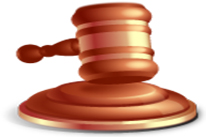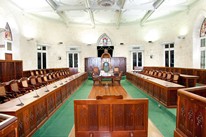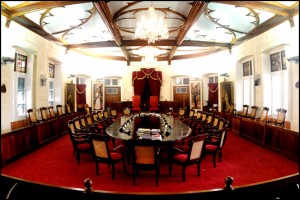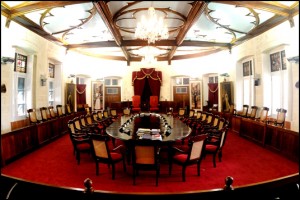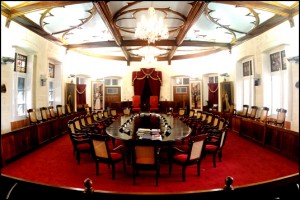The Work of Parliament
Primary legislation is enacted by passage through The House of Assembly and Senate with assent by the Governor-General. Subsidiary legislation will be debated if the Interpretation Act or other legislation so provides, or if its importance commends debate to the Houses.
Legislative powers of the Houses are based on provisions of the Barbados Constitution.
Parliamentary sittings are regulated by Standing Orders (called rules in some countries) similar to those applied in many Parliaments in the Commonwealth.
Privileges and immunities of the Senate and House of Assembly are set out in legislation, as are the punitive powers of the Houses. These are all similar to these found in most post-colonial legislatures in the Commonwealth.
The inheritance from Westminster is significant, and contemporary trends are towards a more national expression of Parliamentary development.
The officials of Parliament are a Clerk and Deputy Clerks with supporting secretarial, accounting, security, library, reportorial, maintenance and service personnel, all in Parliamentary service, excluding these security personnel who are drawn from disciplined forces, especially the police force, for sittings.








